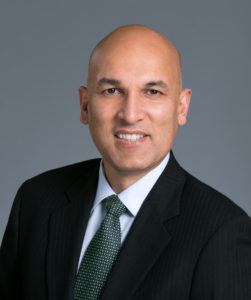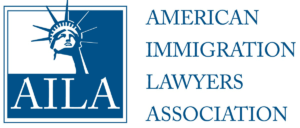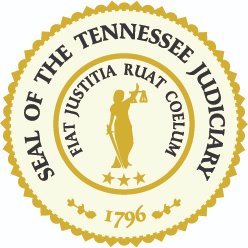What is an H-1B Visa: Complete Guide
H-1B work visa allows an employer to employ a foreign national for up to six years. In order to obtain an H-1B, the employer must demonstrate that the position, for which the H-1B is being filed, requires a professional in a “specialty occupation” and, further, the foreign national (beneficiary) meets the required qualifications.
A "specialty occupation" is an occupation that requires theoretical and practical application of a body of highly specialized knowledge and attainment of a bachelor's or higher degree in the specific specialty (or its equivalent) as a minimum for entry into the occupation in the United States.
During each fiscal year, USCIS (US Citizenship & Immigration Services) allows up to 65,000 foreign nationals to receive initial H-1B status, running from October 1 to September 30. These numbers are reduced by the U.S.-Chile and U.S.-Singapore Free Trade Agreements (FTAs), which set aside 6,800 numbers for workers from these two countries each fiscal year. Unused FTA visas from a prior fiscal year may be recaptured and made available in the first six weeks of the following fiscal year. There is an additional quota of 20,000 H-1B that are reserved for foreign nationals holding a Master’s degree or higher awarded by a college or university in the United States.
Procedure & Requirements
- The foreign national must have a U.S. equivalent bachelor’s degree or equivalent work experience;
- Attainment of a bachelor’s or higher degree in the specific specialty (or its equivalent) should be the minimum entry into the occupation;
- The petitioner must obtain a labor conditional application (LCA), after first obtaining the prevailing wage determination from an acceptable wage survey source, from the U.S. department of Labor;
- Upon approval of the LCA, the employer should file a Form I-129 petition with the US Citizenship & Immigration Services (USCIS);
- The petitioner can expedite the H-1B process so that the initial determination is made within 10-15 calendar days by requesting premium processing for an additional fee to the US Citizenship & Immigration Services.
Related Issues
- A foreign national who is currently in H-1B status is ‘generally’ exempt from the above listed numerical limitation;
- The spouse and unmarried child/ren below the age of 21 are allowed to accompany / join the foreign national in H-4 status, however they are not allowed to work in the United States unless they qualify for a work visa;
- A foreign national may hold H-1B status for a maximum of six years, generally issued in increments of up to three years;
- An extension beyond the six-years is permitted under certain circumstances.
H-1B Visa Professional Workers: Questions & Answers
The H-1B visa is a nonimmigrant status that enables a foreign national to work in the U.S. in a specialized field for a maximum duration of six years. This visa is employer-sponsored, meaning the hiring company must show that the job role for which the H-1B is sought necessitates a professional with specialized skills. Additionally, the foreign applicant (also known as the beneficiary) must fulfill the qualifications required for this specialty occupation.
A "specialty occupation" is an occupation that requires theoretical and practical application of a body of highly specialized knowledge and attainment of a bachelor's or higher degree in the specific specialty (or its equivalent) as a minimum for entry into the occupation in the United States. Generally, professional level occupation in law, computer science, accounting, engineer, medicine, dentistry, etc. requiring at least a bachelor’s degree in the field related to the occupation will qualify for H-1B status.
General bachelor’s degree may not qualify for H-1B. It is important for the job to require a bachelor’s degree or higher in a specialized field and for you to have at least a bachelor’s degree in the field related to the job.
While having a bachelor's degree is a requirement for the H-1B work visa, persons without a 4-year bachelor's degree may be able to get by with job experience instead. Three years of specialized work experience is typically equivalent to one year of formal education. Therefore, you may still be eligible for H-1B status despite not having a formal bachelor's degree.
For over 22 years, we've been tackling intricate issues such as these and are fully prepared to assess your qualifications to navigate you through the process. Our team will rigorously analyze your individual case, drawing links between your targeted coursework and professional experience. Utilizing this methodology, we might be able to obtain an experiential evaluation that aligns your educational background and work history—or just your education—with a degree that is closely related to the specialty occupation in question.
Each fiscal year, the U.S. Citizenship and Immigration Services (USCIS) allocates 65,000 initial H-1B visas, effective from October 1 to September 30; this allocation is commonly referred to as the 'H-1B cap.' This figure is adjusted due to agreements under the U.S.-Chile and U.S.-Singapore Free Trade Agreements (FTAs), which reserve 6,800 visas annually for nationals from these two countries. Any FTA visas not used in one fiscal year can be rolled over into the first six weeks of the subsequent fiscal year. Additionally, there is a separate quota of 20,000 H-1B visas designated for individuals who have earned a master's degree or higher from an accredited U.S. college or university.
Purchasing a house is possible on an H-1B status.
On an H-1B status, you're not permitted to work as an independent contractor, often referred to as a 1099 worker. A bona fide employer-employee relationship, typically evidenced by a W-2 form, must exist between you and your H-1B sponsoring employer.
You are not permitted to freelance on an H-1B status. A bona-fide employer-employee relationship, typically evidenced by a W-2 form, must exist between you and your H-1B sponsoring employer.
Yes, you are eligible to work part-time while on an H-1B status.
Typically, if you've already been counted against an H-1B cap in the past, you won't be subject to a new cap when switching employers. However, if current H-1B was granted for a cap-exempt employer, such as a university, it's likely you weren't counted against the cap. In such a scenario, if you decide to leave your current cap-exempt employer for a cap-subject employer, you would be subject to the H-1B cap.
Yes, if your new job requires at least a bachelor’s degree or higher in a specialized field and you have at least a bachelor’s degree in the field related to the job then you are allowed to change your H-1B employer.
Yes, anyone who is applying for the H-1B for the first time is subject to the numerical limitation of H-1B cap.
A foreign national may hold H-1B status for a maximum of six years, generally issued in increments of up to three years.
H-1B extensions may be filed, with the USCIS, up to 6 months before the validity of the current H-1B expires.
You are allowed to start working with your new H-1B employer, under American Competitiveness in the 21stCentury Act (AC21), as soon as the USCIS receives your H-1B transfer petition.
Certainly, you can change your H-1B employer and work in a different field if the new job mandates at least a bachelor's degree or higher in a specialized area, and you possess a bachelor's degree or higher in a field relevant to the new job. There is no obligation to remain in the same field as your original H-1B approval if the requirements for the new job differ.
Yes, it is possible for you to obtain an H-1B while you reside outside the U.S. An employer can apply for the H-1B visa on your behalf and once approved you would obtain the H-1B visa stamp at an U.S. Embassy/Consulate.
If you currently do not have a H-1B work visa in your passport, then you will need to first obtain an H-1B work visa from the U.S. Embassy/Consulate. If you currently do have a valid H-1B work visa stamp in your passport, then you would be able to use the existing stamp along with a copy of your current H-1B approval notice (I-797) to enter the U.S. It is also advisable to carry, with you a copy of your most recent paystubs and/or an employment verification letter issued by your current employer.
When you change your H-1B employer from Company A to Company B, your previous H-1B visa stamp associated with Company A doesn't automatically become invalid for re-entry into the United States. At the time of re-entry into the U.S. you will need to show the CBP the following: the H-1B approval notice from Company B, your current H-1B visa with Company A information on it, recent paystubs and/or an employment verification letter.
The 10-day rule allows the Customs and Border Patrol (CBP) to admit you into the U.S. for up to 10 days before the validity period of you H-1B begins and allow you to remain for up to 10 days after the validity period of your H-1B ends. However, you are not employment authorized during these 10-day (before and after) period.
The 30-day rule allows your H-1B employers to make short term appointments to locations not specified in the LCA, without submitting an amendment petition or a new LCA, if the H-1B worker does not exceed 30 work days at the non-permanent work location. Offsite work appointments must be for the specified job description on the LCA and may not be an assignment to a worksite area of strike or lockout. For the workdays that are offsite, H-1B employers must continue to pay required wages, provide actual cost of out-of-town lodging, and supplement the H-1B worker’s incidental expenses.
If an H-1B employee’s job is terminated or they resign they will enter a grace period. This period is either 60 days or the remaining time left on their H-1B status as indicated in their I-94, whichever is shorter.
During this grace period, the H-1B employee must take one of the following actions.
- Find a new H-1B employer to submit a H-1B transfer petition,
- Apply for change of status (COS) with the USCIS, or
- Leave the United States.
An immigration lawyer can assist the prospective H-1B beneficiary and employer in preparing the strongest case possible for H-1B petition approval. In the majority of instances, an experienced immigration attorney may be able to determine beforehand whether the position and/or credentials qualify for an H-1B.
Your spouse and/or unmarried children under 21 can apply for H-4 status to join you in the U.S. While your spouse maybe be eligible to obtain work permit (H-4 EAD) once certain conditions are met, your children will not be eligible to work.
H-4 dependent spouses and children may attend school in the United States. It is essential to note, however, that while they hold H-4 status, they will not be eligible for employment benefits typically associated with F-1student status, such as post-completion Optional Practical Training. In addition, H-4 minors enrolled in U.S. universities who reach the age of 21 must switch to an F-1 visa to continue their studies.
Yes, you can attend school while on an H-1B visa, as long as the primary purpose of your stay in the U.S. on an H-1B visa is to remain employed with the sponsoring company.
Yes, it is possible to work for multiple employers while on H-1B status provided each additional employer has applied for concurrent H-1B petition on your behalf.
H-1B status permits a “dual intent” (immigrant and nonimmigrant intent). Doctrine of dual intent permits a H-1B holder to continue to remain in nonimmigrant status even if the H-1B holder has initiated steps towards lawful permanent residency.
During the H-1B application process, your employer is required to file LCA with the Department of Labor. As part of our service offering, we will collaborate with you and your employer to pinpoint the optimal mix of educational background and work experience for your role, identify the appropriate occupational code, determine the prevailing wage, and submit the LCA electronically. Upon LCA approval, we'll compile the supporting documentation and file the H-1B petition with the USCIS.
The employer who intends to hire an H-1B worker is required to certify with the U.S. Department of Labor (DOL) that they will compensate the H-1B employee either the prevailing wage or the actual wage, whichever amount is greater. The prevailing wage is defined as the average wage paid to individuals in similar roles within the same geographic region where the job is located. On the other hand, the actual wage refers to the salary the employer typically pays to employees in similar positions at the work location.
It's not mandatory to utilize your Optional Practical Training (OPT) before transitioning to H-1B status. However, opting for OPT could be beneficial, especially because cap-subject H-1Bs don't become effective until October 1st. OPT allows you to work and maintain legal status in the U.S. between your graduation date and the commencement of your H-1B status.
The time it takes for USCIS to approve an H-1B petition can vary significantly depending on several factors. One crucial factor is the specific USCIS service center where the H-1B petition is filed, as different centers may have different processing times. Additionally, the current overall processing times at USCIS can also impact how long it will take for your petition to be approved.
Generally speaking, the approval process for an H-1B petition can take anywhere from 4 to 8 months. However, employers do have the option to expedite the adjudication by requesting premium processing, which generally results in a decision within 15 calendar days, although this comes with an additional USCIS fee of $2,500.
The overall government fees for an H-1B visa vary based on the specific type and desired processing speeds. The base filing charge from USCIS for an H-1B application is $460. On top of that, there's a Fraud Detection and Prevention Fee of $500. Furthermore, employers with 25 or fewer full-time employees in the U.S. must pay an additional $750 under the American Competitiveness and Workforce Improvement Act of 1998 (ACWIA). For those with more than 25 full-time employees, the ACWIA fee is $1,500. Lastly, if an employer has 50 or more employees in the U.S. and over 50% of them hold H-1B, L-1A, or L-1B status, an additional fee of $4,000 is required.
Yes you may be eligible to work in the U.S. in other types of nonimmigrant visa category like TN status which is available to citizens of Canada and Mexico, E-3 which is available to citizens of Australia, L-1 which is available to multinational corporation, or the O-1 for individual who possesses extraordinary ability in science, arts, education, business, or athletics.
You are eligible to apply for the H-1B visa 90 days before the effective start date appearing on your H-1B approval notice.
It is not advisable to travel internationally while your H-1B application is pending, as it could lead to delays or complications in the processing of your application. If you leave the U.S. and your pending petition receives "consular approval" from USCIS, you'll need to exit the U.S. again to secure an H-1B visa stamp in your passport (unless you already have one) before you can return to U.S. in H-1B status.
Most state Department of Motor Vehicles (DMV) may issue you a limited duration driver’s license once you show them the receipt notice for the pending H-1B petition.
Extensive Experience You Can Trust
With years of experience in employment-based immigration, Sharma Law Offices has a proven track record of successful cases. Our nuanced understanding of U.S. immigration laws ensures that your case is in capable hands.



